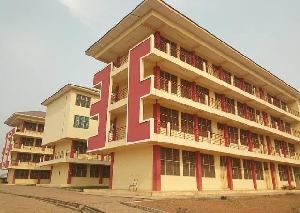Findings of a Dutch university research sighted by Cocoa Post have pointed to poor coordination in business processes as a major challenge confronting Ghana’s cocoa sector.
A 3-member team of researchers from Wageningen University and Research, in the Netherlands, published their work titled “Business processes and information systems in the Ghana cocoa supply chain” in the NJAS – Wageningen Journal of Life Sciences.
The researchers, Emmanuel Ahoa, Ayalew Kassahunb and Bedir Tekinerdoganb said they surveyed 56 persons representing the key actors of the Ghana cocoa supply chain (GCSC).
Our findings indicate that there is a lot of handovers and waiting times in the business processes of the actors. The processes among the actors are not coordinated and properly aligned.
Current Business Processes: Paper Over Technology
They identified the key actors to include not only the cocoa farmers, cocoa traders and the sector regulator, COCOBOD, but also the business units within these organisations, such as Purchasing Clerks, District Managers, Port Managers and Operations Managers within Licensed Buying Companies (cocoa traders).
In their introduction, the research team noted that despite cocoa holding a leading position in the Ghanaian economy, no explicit effort has been made in modelling and documenting the business processes of the cocoa supply chain.
As the second-largest producer and exporter of cocoa beans in the world, Ghana’s cocoa industry is said to account for 20% of global cocoa production.
Currently, the cocoa sector accounts for 30% of the total export earnings of the West African nation, and provides income for not less than six million people, representing 30% of Ghana’s population.
This is why the findings of the study may be of utmost concern to players in the cocoa supply chain.
According to the study, although some IT systems are deployed, paper-forms are more prevalent leading to inadequacies and inefficiencies, poor data management and unfair distribution of information among the actors.
LBCs Poor at IT Utilisation?
The Wageningen University and Research study covered a broad spectrum of the current business processes of the cocoa supply chain in Ghana and its underlying Information Technology (IT) systems.
The Emmanuel Ahoa-led team of researchers reported, “our results indicate that despite the availability of IT systems, the actual use of the systems in supporting the business processes is very low among all actors.”
Particularly the IT systems owned by LBCs are underutilised. This can be attributed to the lack of expertise or the proper configuration of the software applications.
This observation by the Dutch study would explain the recent introduction of a cocoa value chain management software – CocoaAsempa – by a private IT firm TBM Risks Consult.
A Managing Consultant of the company, Mr Yaw Korankye Antwi, told Cocoa Post the objective of their solution is to help eliminate paperwork, as much as possible, from the business processes of industry actors while inching the sector closer to the government’s vision of a cash-lite society.

Credit: E. Ahoa et al – Business process model of receiving cocoa beans from district depots and processing receipts.
Business process models proposed
The trio has based on the results of the survey study proposed some formal business process models for the various stages of the industry, complete with supporting IT resource linkages.
These can help bring smooth translations from the current paper-based towards an IT-based management of the business processes of the Ghana cocoa supply chain, they declared.
The team is optimistic their models will enhance common understanding between business process analysts, business owners and software engineers involved in the supply chain.
“The models will help the proper exploitation of the IT systems already deployed at the LBCs and COCOBOD, and the development of appropriate IT systems for supporting the farmers’ business process”, they added.
Business News of Monday, 6 July 2020
Source: thecocoapost.com













